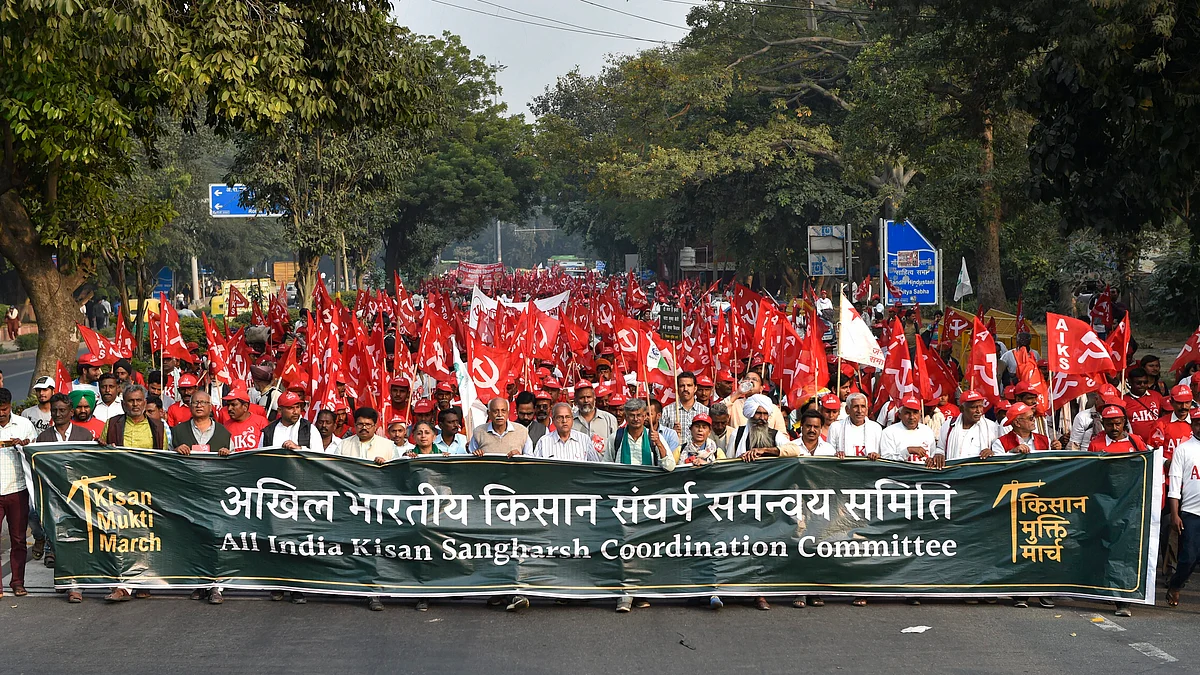How much will farm distress hurt BJP and Modi?
Narendra Modi’s lectures to farmers on ‘Mann Ki Baat’ do not seem to have cut much ice. Election results in the five states may hold some clues to how much the alienation from farmers will hurt BJP

Prime Minister Narendra Modi continues to be fixated with Yoga. In Argentina for the G-20 summit, the PM is said to have gushed at Yoga being India’s biggest gift to the world. The claim, made soon after an estimated 100,000 poor farmers assembled in New Delhi to protest against rural distress, is disconcerting because the PM had the opportunity to also talk about Indian agriculture, trade barriers and why subsidies continue to be important.
While Indian Agriculture’s contribution to the GDP has come down to a relatively modest 17%, as much as 10% of our export continues to be agricultural produce. Which means that middlemen and traders are making more money out of Agriculture than the farmers. The Modi Government which swept to power on the promise of doubling farmers’ income has singularly failed to fix this structural problem.
Can the farmers’ march into the national capital last week be compared to the ‘India Against Corruption’ agitation that shook the country seven years ago and arguably led to UPA’s electoral debacle in 2014? Will the farmers’ protest be a similar game changer and hurt the ruling party and Government as much as IAC did?
There are both similarities and dissimilarities in the two protests. While the sprawling Ramlila Ground has hosted both, the anger against corruption six years ago was largely ‘engineered’, backed by the RSS and corporate bodies and was accorded almost saturation coverage by virtually all TV channels. In contrast the farmers’ protest seem to have drawn sustenance more from less organized and less prosperous farmers’ groups and other bodies.
BJP-ruled Madhya Pradesh and Rajasthan offered sops early this year in the form of loan waivers and bonus to the farmers. None of it seems to have worked on the ground
The anguish of farmers over rising input costs, unremunerative prices and the distress caused by debt traps is in some ways far more serious than the outrage over ‘corruption’ in 2011. But TV channels by and large have ignored the farmers, apparently because the Government did not want the agitation highlighted ahead of crucial elections. If farmers’ protest fails to seriously dent the Government and BJP’s credibility, silence of TV news channels would have played a key role.
There is another difference and that is in the way the central government responded to Anna Hazare and his merry band in 2011 and the manner in which the Modi Government has responded to the farmers. In 2011 the UPA Government invited Anna Hazare and Arvind Kejriwal for a dialogue and controversially sent four senior union ministers to meet Baba Ramdev at the Delhi airport in a bid to hammer out a solution. Deliberations were initiated and a draft Lokpal Bill was prepared in consultation with the protestors.
In contrast, the Modi Government has refused to take the farmers’ protest with any degree of seriousness. Neither the Prime Minister nor the Agriculture Minister found time to meet even a delegation of protesting farmers. The Trolls described the farmers as communists and ‘urban Naxals’ masquerading as farmers. Snide comments that many of the poor farmers would have flown to the capital were made. And various government functionaries and BJP spokespersons maintained that the Government had done what it could and that farmers’ demands had already been met.
The Government had indeed announced a higher Minimum Support Price for many of the crops. But while several of these crops are not procured by the Government, making the MSP redundant, the implementation of the MSP has also been tardy on the ground, forcing farmers to sell their crop at prices much lower than the MSP. But the Government has turned a deaf ear to the grievances.
Prime Minister’s ‘Fasal Bima Yojana’ is another flagship scheme which is cited by the Government to drum up its claim to be a farmer-friendly government. But as journalist and activist P. Sainath has demonstrated, the scheme has benefitted the private insurers much more. In Sainath’s words, ‘it is a bigger scam than Rafale’.
BJP-ruled Madhya Pradesh and Rajasthan offered sops early this year in the form of loan waivers and bonus to the farmers. None of it seems to have worked on the ground.
Inability to deal with rural distress is a policy failure that will hurt the BJP for a long time. But will it affect the party’s chances in the elections ? The results will show if voters continue to cast their votes on caste, religion and allurements or if they have started voting on bread and butter issues. But no matter what the outcome is, the next Governments in states and at the Centre have their work cut out.
Follow us on: Facebook, Twitter, Google News, Instagram
Join our official telegram channel (@nationalherald) and stay updated with the latest headlines